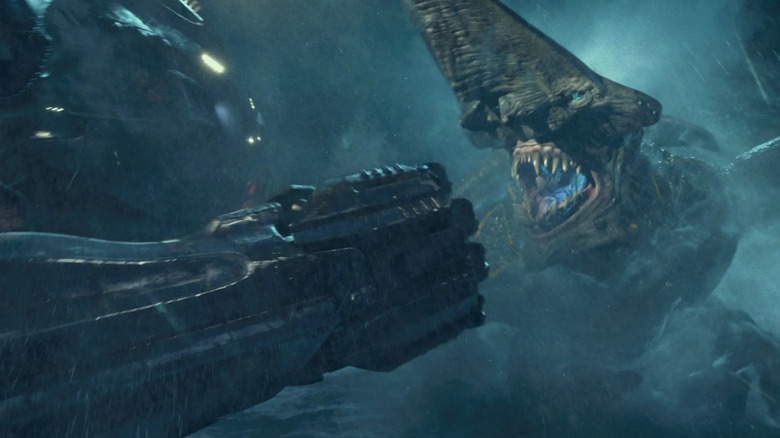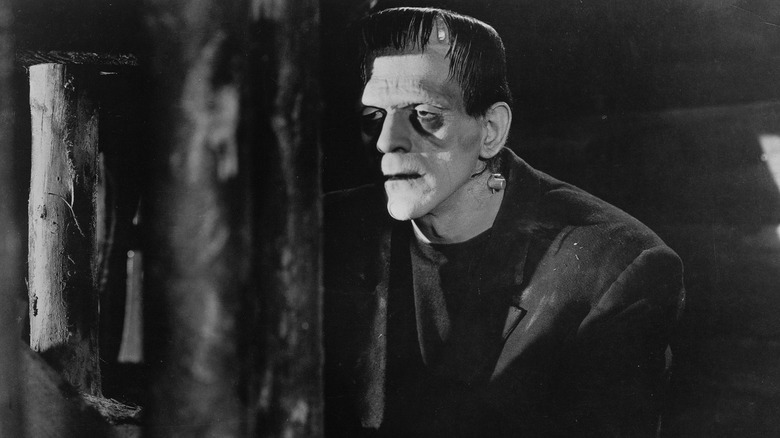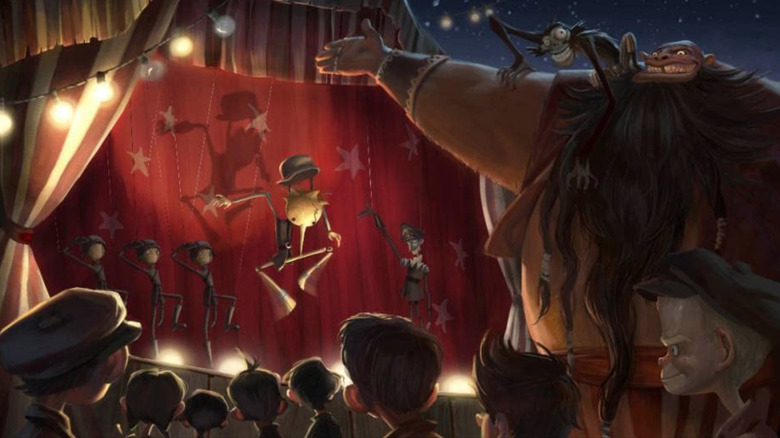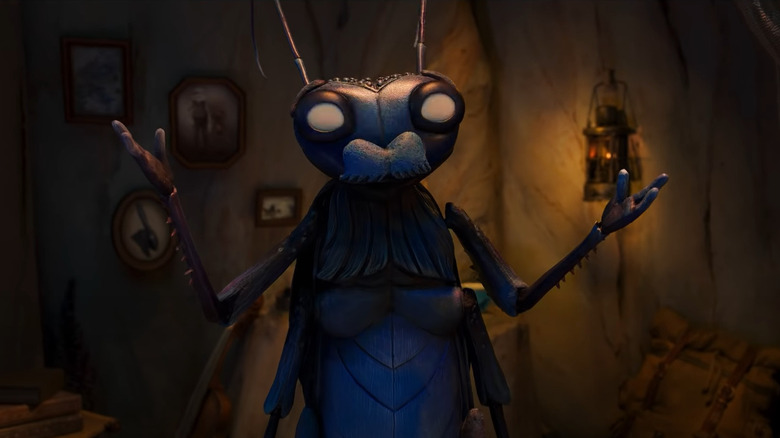The Movie That Started Guillermo Del Toro's Love Affair With Monsters
It's relatively safe to say that Guillermo del Toro has a thing for monsters. Virtually every one of the films the director has made has featured some kind of horrifying creature. The obsession spans from the literal, like that of the Pale Man in "Pan's Labyrinth" and colossal Kaiju of "Pacific Rim, to the metaphorical, as with his first film, "Cronos," and the newly minted "Nightmare Alley." But del Toro's fascination with monsters isn't just morbid curiosity.
If it was, monsters in his films would remain solely terrifying and intense reflections of human nature. But del Toro also expresses clear admiration for them as outcasts, as individuals caught up in a world so entirely unlike themselves that they're treated as hostile. It's a story that plays out in everything from "Hellboy" to "The Shape of Water" — not to mention his personal favorite, Mary Shelley's "Frankenstein." Turns out the reason del Toro can't get enough of monsters has quite a lot to do with the ones he himself saw come to life on the silver screen when he was just a boy.
Del Toro's instant connection with Frankenstein
Boris Karloff remains a giant within the horror genre and among actors who've played monsters. It's no surprise that just two of the films he appeared in, "Frankenstein" and "The Bride of Frankenstein," have such far-flung influence on everything from "Star Wars" to Jordan Peele's "Us." Guillermo Del Toro underscored the profound impact seeing Karloff onscreen had on him to NPR, saying that witnessing the performance felt like being "struck by a lightning bolt of fever."
Children who don't fit in is another running motif that pops up every now and then in del Toro's films. I think of 10-year-old Ofelia in "Pan's Labyrinth" or even the young versions of Hellboy that appear in flashbacks — young outcasts the director clearly saw a bit of himself within. And his connection with Karloff's portrayal of Frankenstein's monster was just as rooted in an identity del Toro was still coming to terms with as an adolescent. He continued to NPR:
"This monster crossing the threshold, this anomaly seemed to embody everything that I thought was 'wrong' with me, in a beautiful way. It was like a patron saint being discovered for me."
Of all the ways you could describe Karloff's portrayal, I wouldn't have thought "patron saint" would be one of them. Then again, that's pretty on-brand for del Toro, and I'd imagine if anyone had a pantheon of iconic patron monsters, it's him. At one time, del Toro was actually going to direct a "Frankenstein" film, and to add insult to injury to the film never being made, Javier Bardem was going to play the monster. But at least we can take solace in the fact that del Toro's next film is going to be a deliberately unnerving take on a Disney classic.
Del Toro's latest fixation: Pinocchio in a police state
Guillermo del Toro's next project is unsurprisingly very del Toro-esque: a stop-motion remake of the "Pinocchio" story that'll unfold in the shadow of Mussolini's fascist Italy. If you're getting "Pan's Labyrinth" flashbacks, you're not the only one. The director further explained to NPR that both Pinocchio and Frankenstein's monster actually have quite a bit in common:
"They are both characters that are born into a world and then sort of abandoned to their fate to figure it out. They're very Miltonian in a very different way. I think Pinocchio and Frankenstein both go through that painful learning curve. I find it moving in Pinocchio, the idea that he has no notion of not being "a real boy," and that he is a real boy by the act of existing and being in this world. I try to explore that in the movie I'm making now. I'm making the stop-motion version of 'Pinocchio,' but it's set during the rise of Mussolini in fascist Italy in which most people act like a puppet except the puppet. I think that it will be a very different version from the classic ones. But I think it's one that suits me and my preoccupations and my recurring questions very, very much perfectly."
Two Pinocchios in 2022
In a lot of ways "Pinocchio" culminates some of the themes most important in Guillermo del Toro's work, as he's not only a child outcast, but also one treated as inhuman. But of course, Pinocchio's own status as a puppet is one that needs to be held up to the world like a mirror — hence the brilliant juxtaposition of people who act like fascist "puppets" alongside a wooden boy. Leave it to del Toro to find brilliant ways to root the supernatural elements of a story in the gritty, real world. I think it's safe to say the director's version of "Pinocchio" will be just as emotionally taxing a film as it sounds. Especially given it's a story about a boy trapped inside a police state who cannot be deceptive or lie — even to save himself or someone else. One can imagine the tragedies that ensue.
What's ironic is that by the time 2022 has ended, we will have been treated to not one, but two remakes of the Pinocchio tale. One is a Disney live-action remake with Tom Hanks, while the other is del Toro's Netflix film with Ewan McGregor as the narrating Cricket. I'm willing to bet at least some parents will accidentally find themselves and their children viewing a much darker version of the sanitized story they're familiar with at some point.



